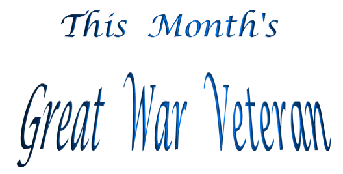James Norman Hall was born at Colfax, Iowa. His father was Arthur Wright Hall, the owner of a mineral water business, and mother Ella Annette (Young) Hall. He attended public schools in Colfax, and entered Grinnell College, Iowa, graduating in 1910. From 1910 to 1914 he was a social worker in Boston, working for Society for the Prevention of Cruelty to Children.
At the outbreak of World War I, Hall joined the British Army. He served in the 9th Battalion Royal Fusiliers, taking part in the Battle of Loos. His war memoirs Hall published in 1916 under the title Kitcher's Mob and High Adventure. Hall re-enlisted in 1916 as a member of the Lafayette Escadrille, underwent air training and was assigned to Squadron 124 on June 16, 1917. Ten days later he was seriously injured in a crash. This event was recorded in a letter home by American Field Service driver George K. Denison father of Great War Society member Bob Denison:
|
There is an aviation field near the camp (ed. at Chaudun, southwest of Soissons) and the aviators go out every day hunting for Bosche machines. Yesterday Jimmy Hall, who wrote "Kitchener's Mob" and who is staying at the camp, was caught in a pocket of seven Germans and brought down. He landed his machine, however, and is expected to live. He is one of the nicest fellows that I have met.
|
When America joined the war, Hall transferred to the American Air Service serving with the 94th, then the 103rd Aero Squadrons. In May 1918 Hall was shot down behind the German lines and he spent the last six months of the war in a prison camp. Late in the war he met Charles Nordhoff, another American pilot who had served in the war with French units. The two men won a commission to write a history of the Lafayette Flying Corps.
When Hall and Nordhoff subsequently received an advance from Harper's to write travel articles, they moved to Tahiti. In 1921 appeared their travel book Faery Lands of the South Seas. Hall continued with travel books and Nordhoff published novels. In 1925 Hall married Sarah Winchester, his friend had married a Polynesian woman a few years before.
In 1929 appeared Nordhoff's and Hall's jointly written book about flying, Falcons of France. After Hall's suggestion the team started to write Mutiny on the Bounty (1932), the story about charismatic Fletcher Christian and Captain William Bligh. Two additional volumes of the series were published in 1934 and the following year saw their work filmed in one of Hollywood's greatest epics starring Clark Gable and Charles Laughton.
In his later years, Hall wrote for children, a collection of stories about Dr. Dogbody -- a peg-legged old sailor, travel essays, narrative poems, and an collection of short stories. In 1950 Hall returned to the United States to accept an honorary doctorate from Grinnell University. Hall died next year in Tahiti. His posthumously published memoirs, My Island Home, appeared in 1952.
Learn more about Hall at these websites:
Back
|

